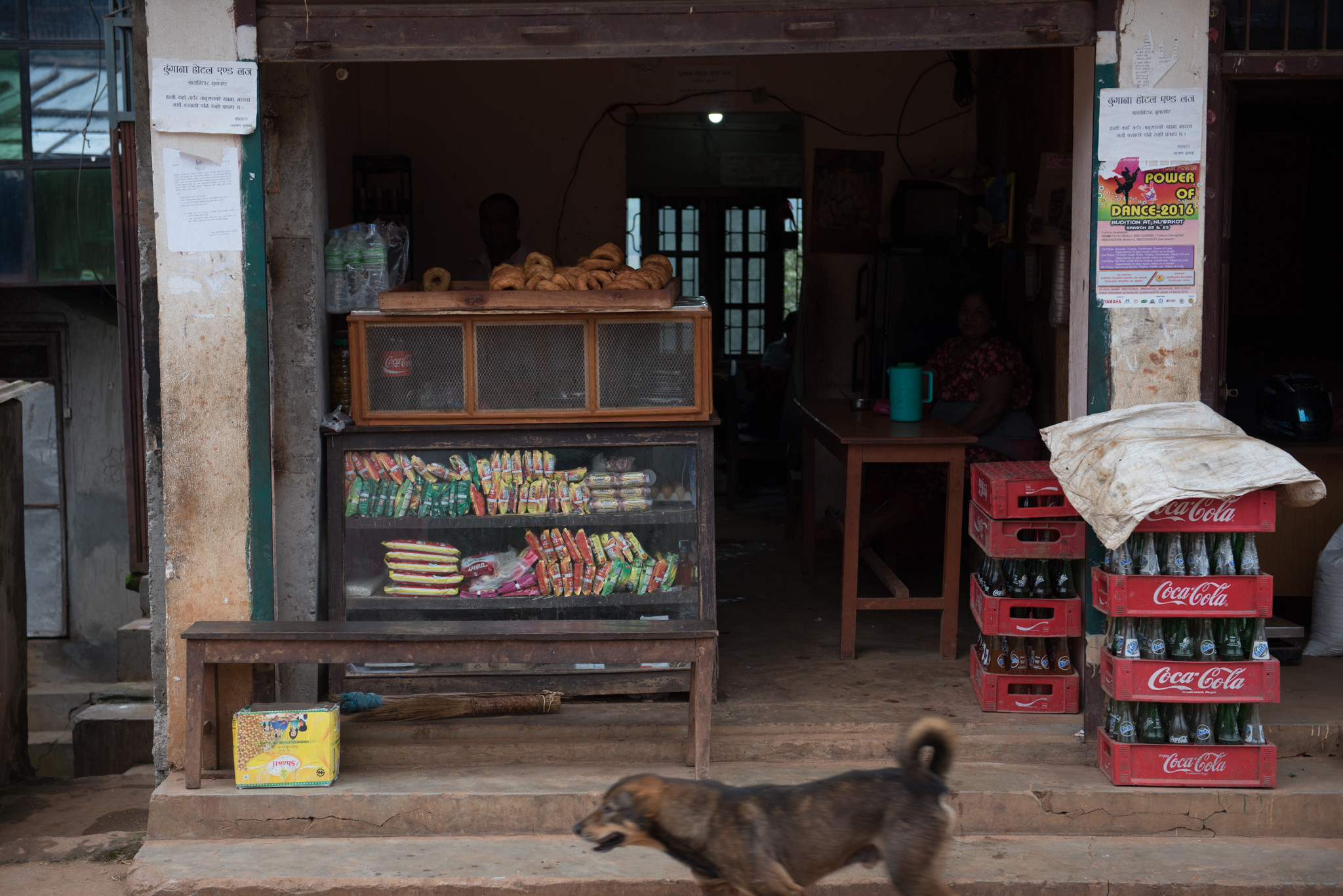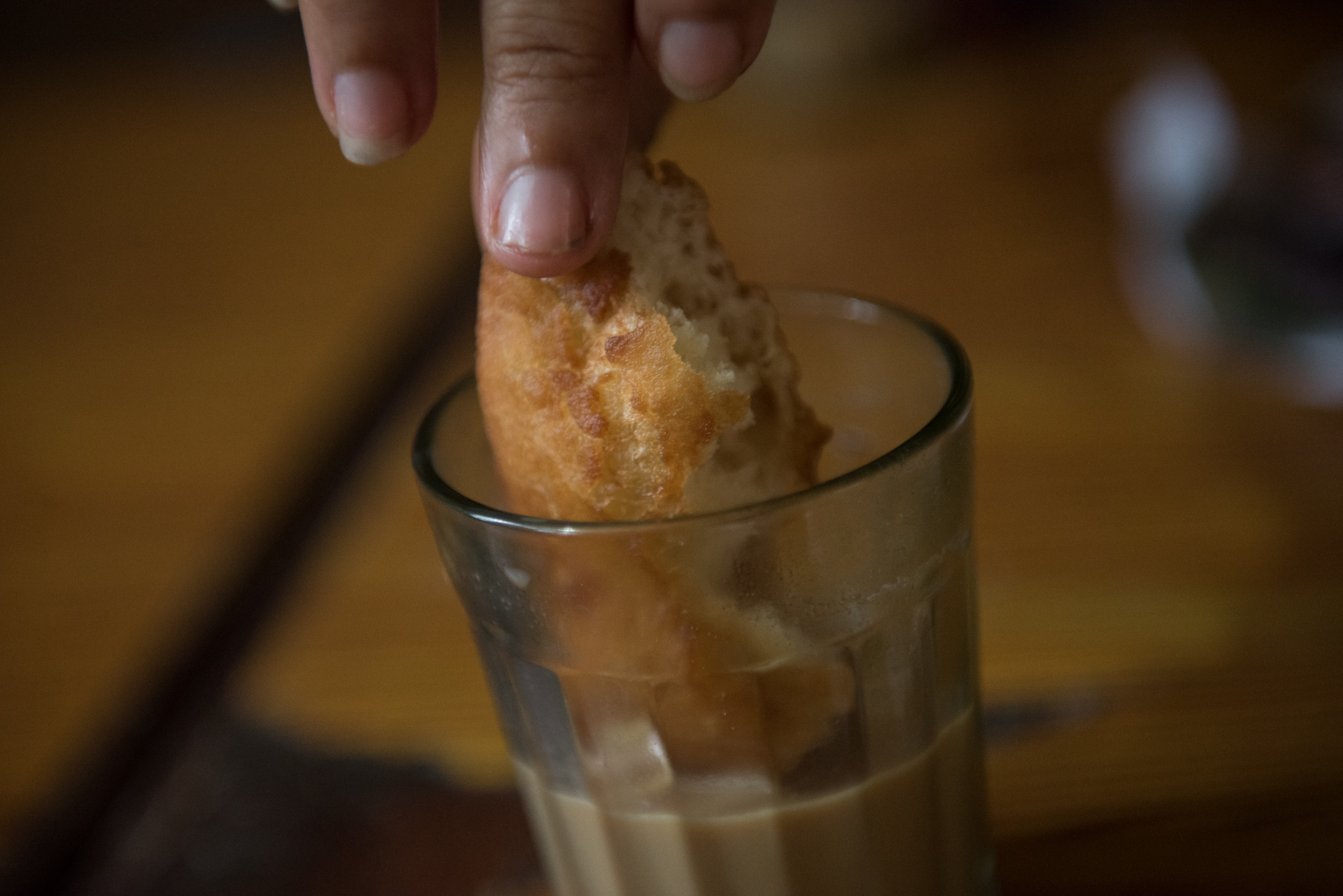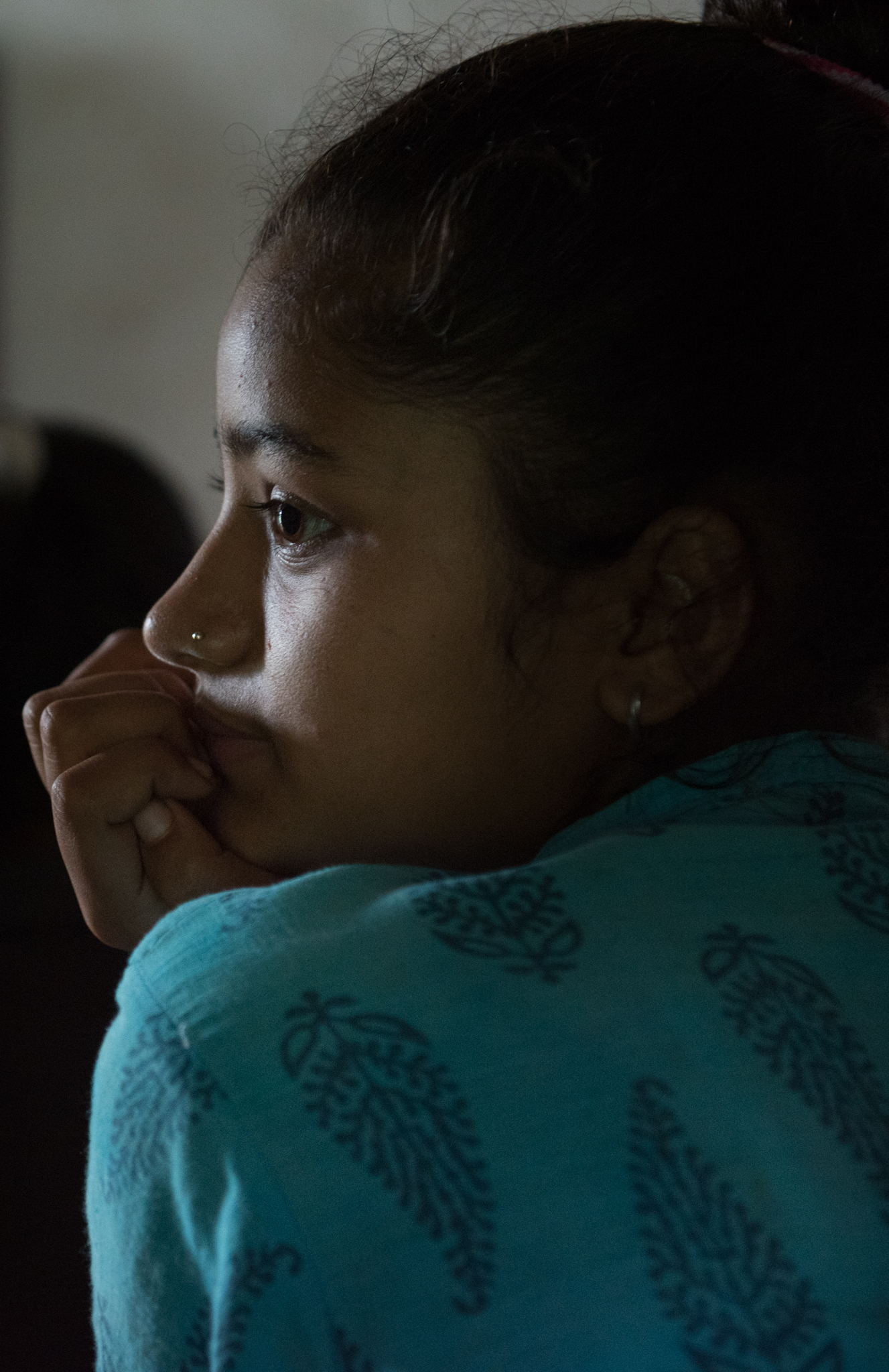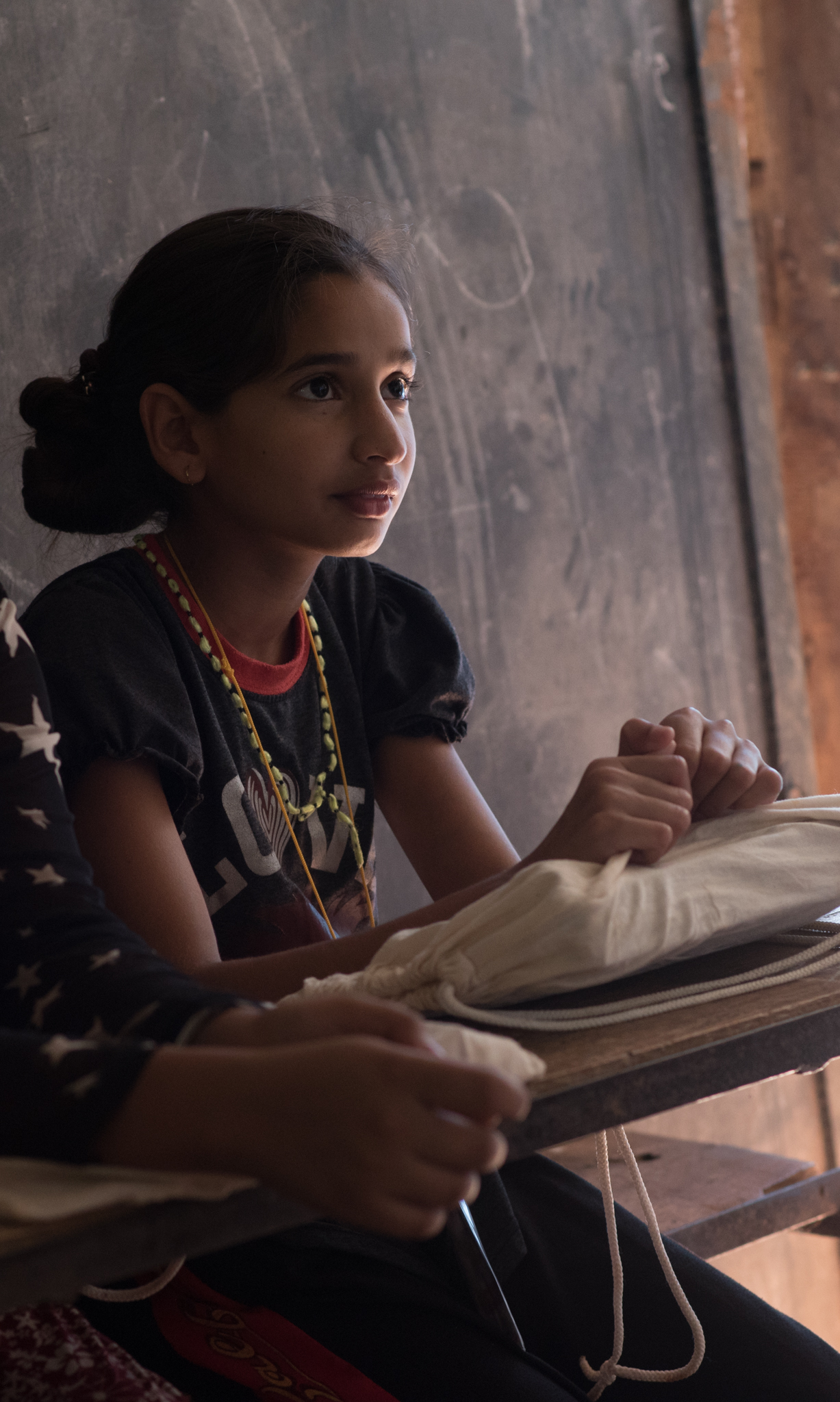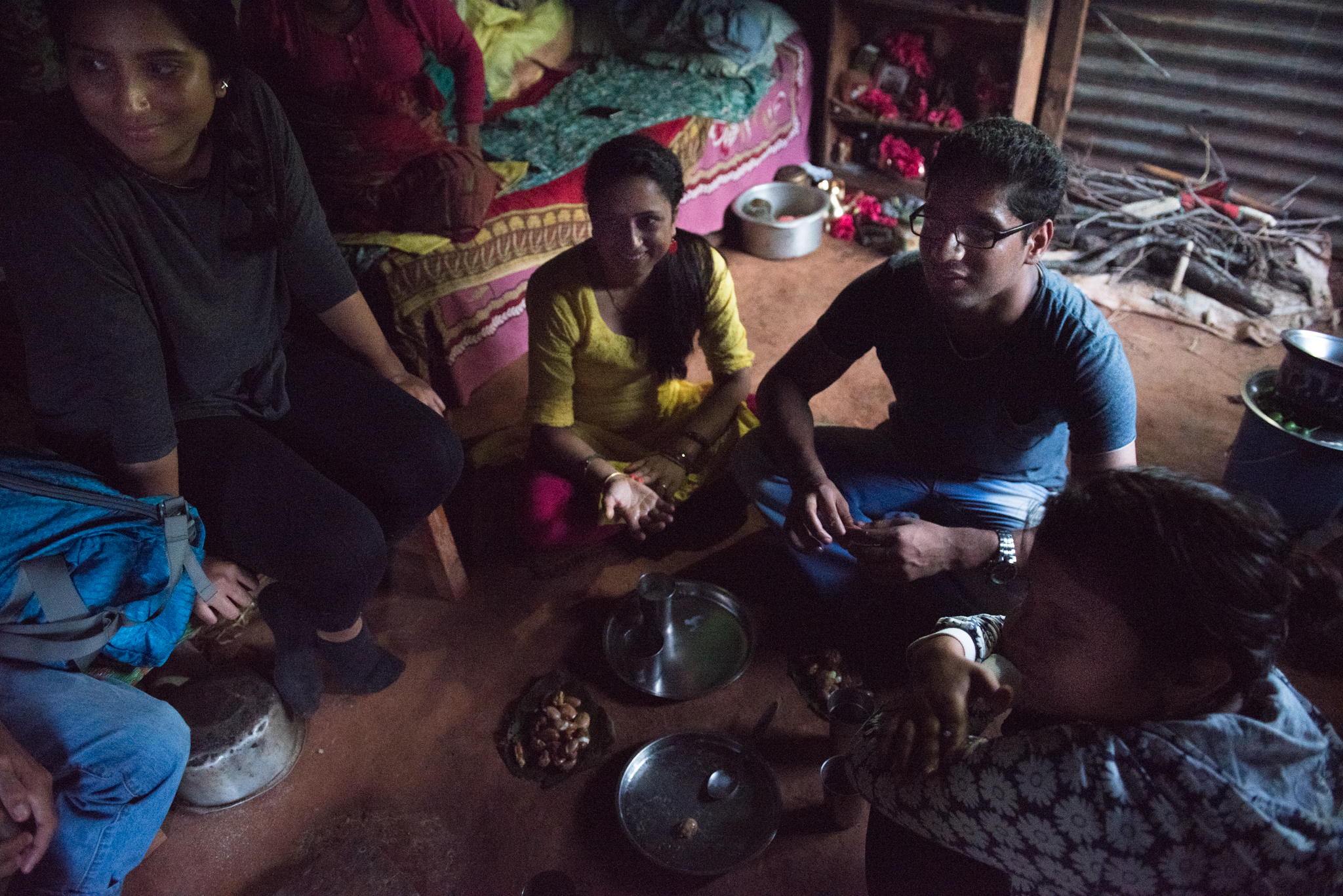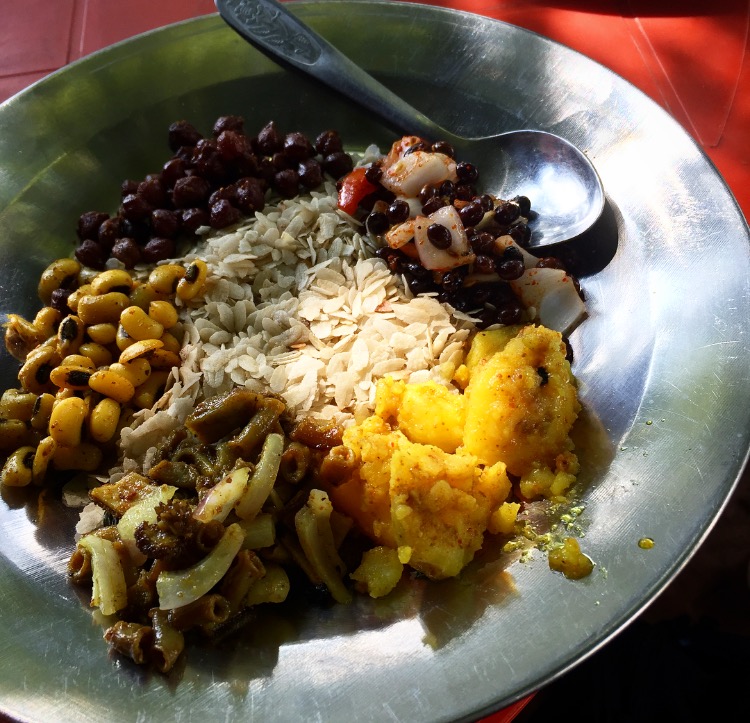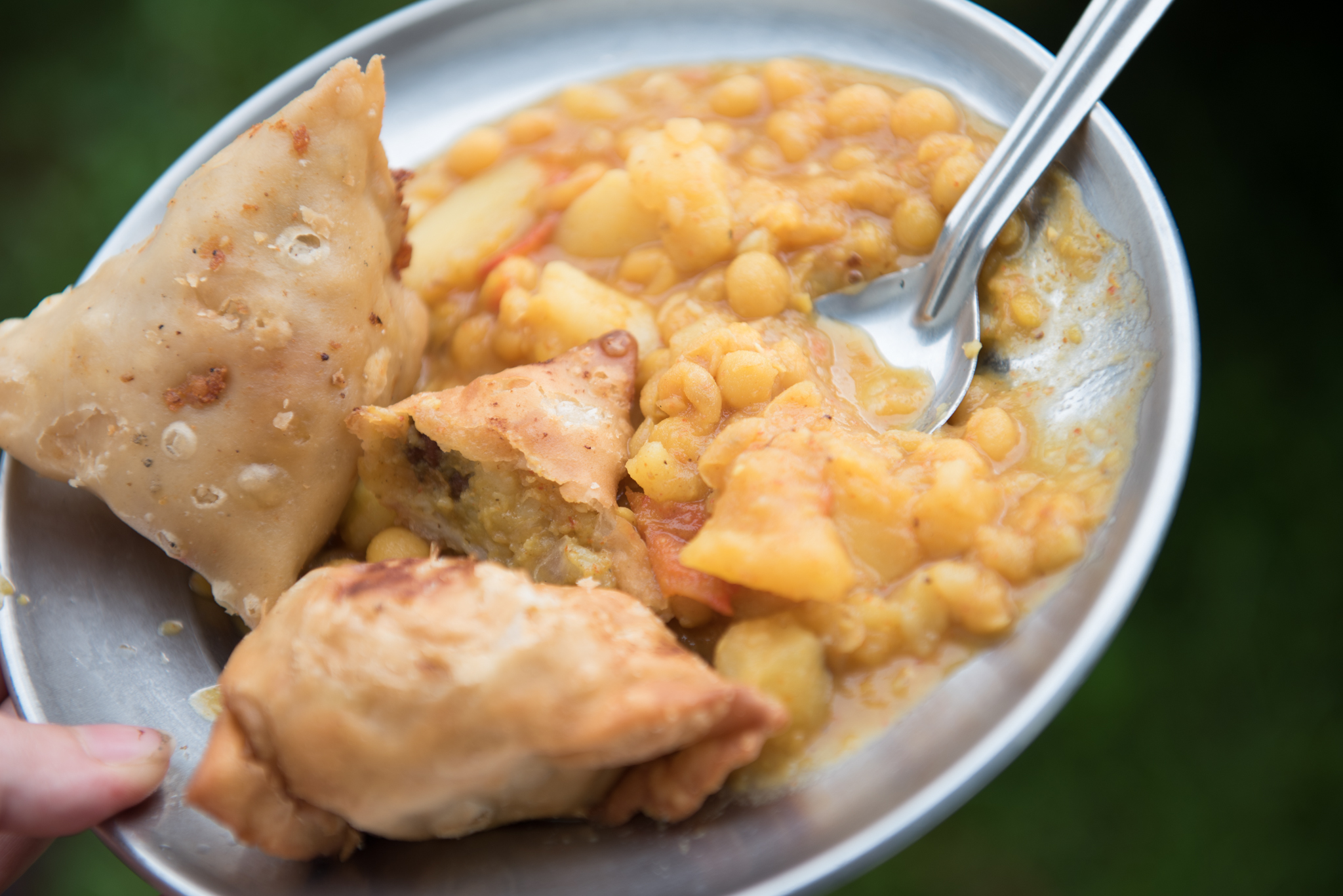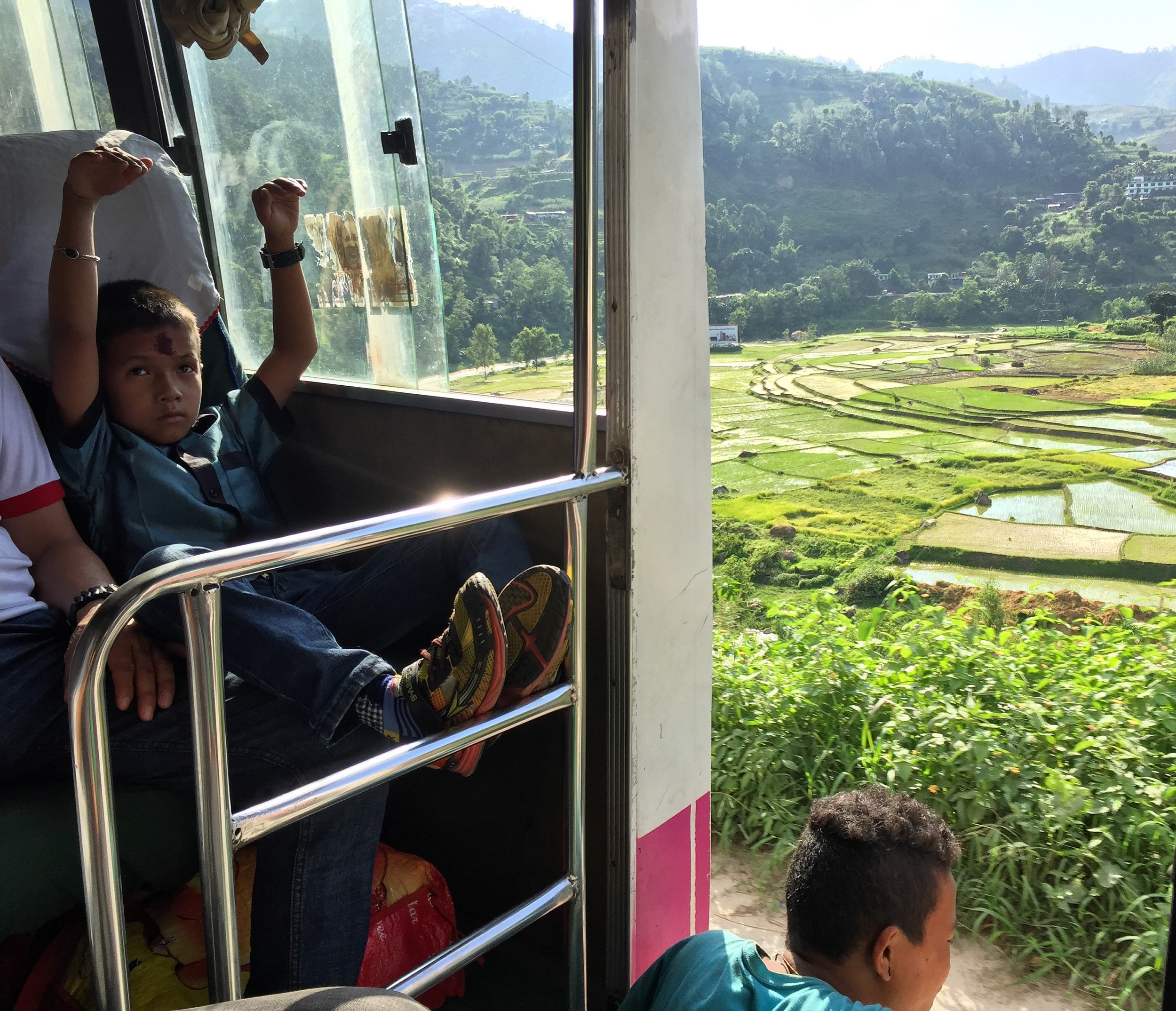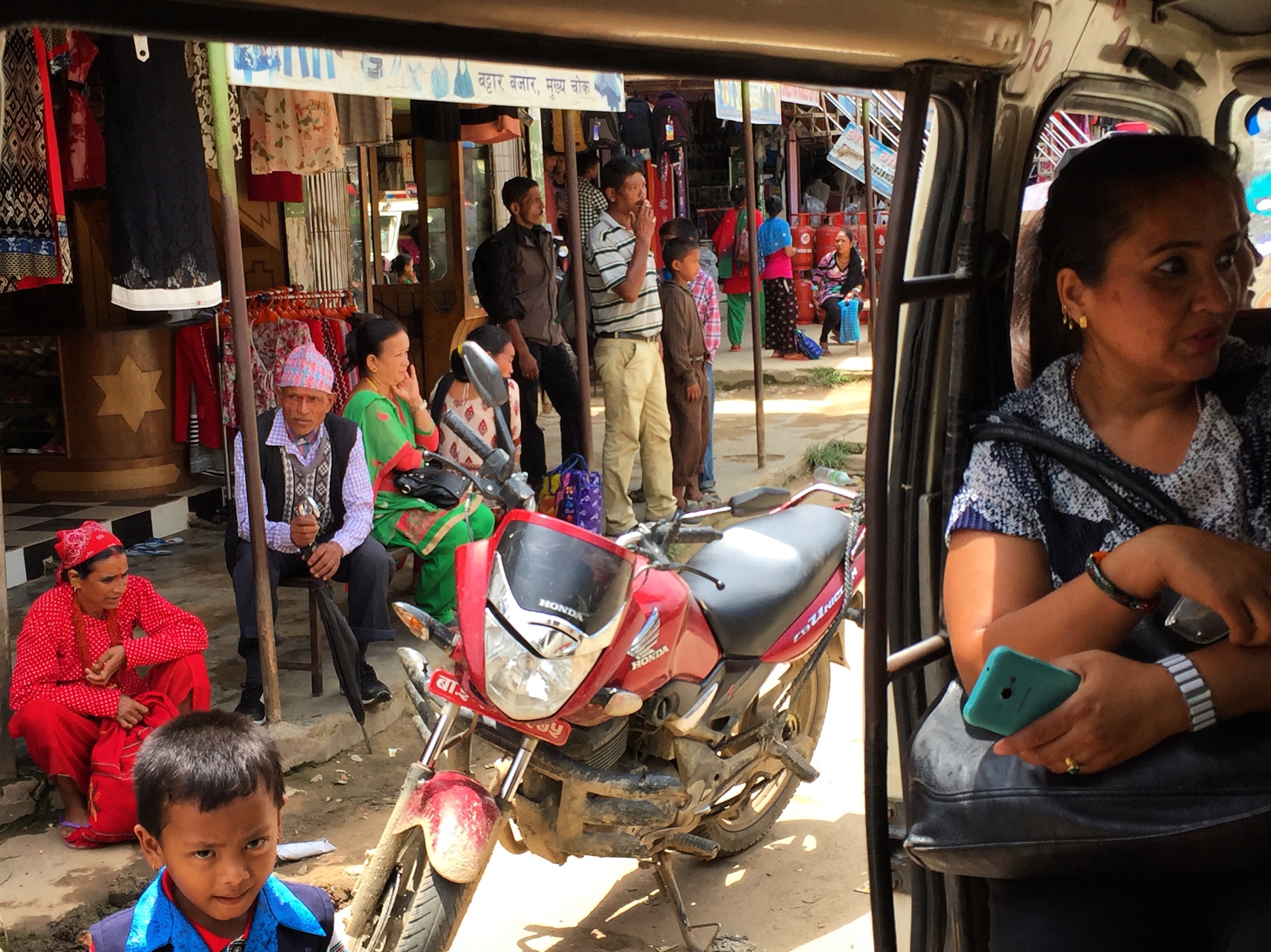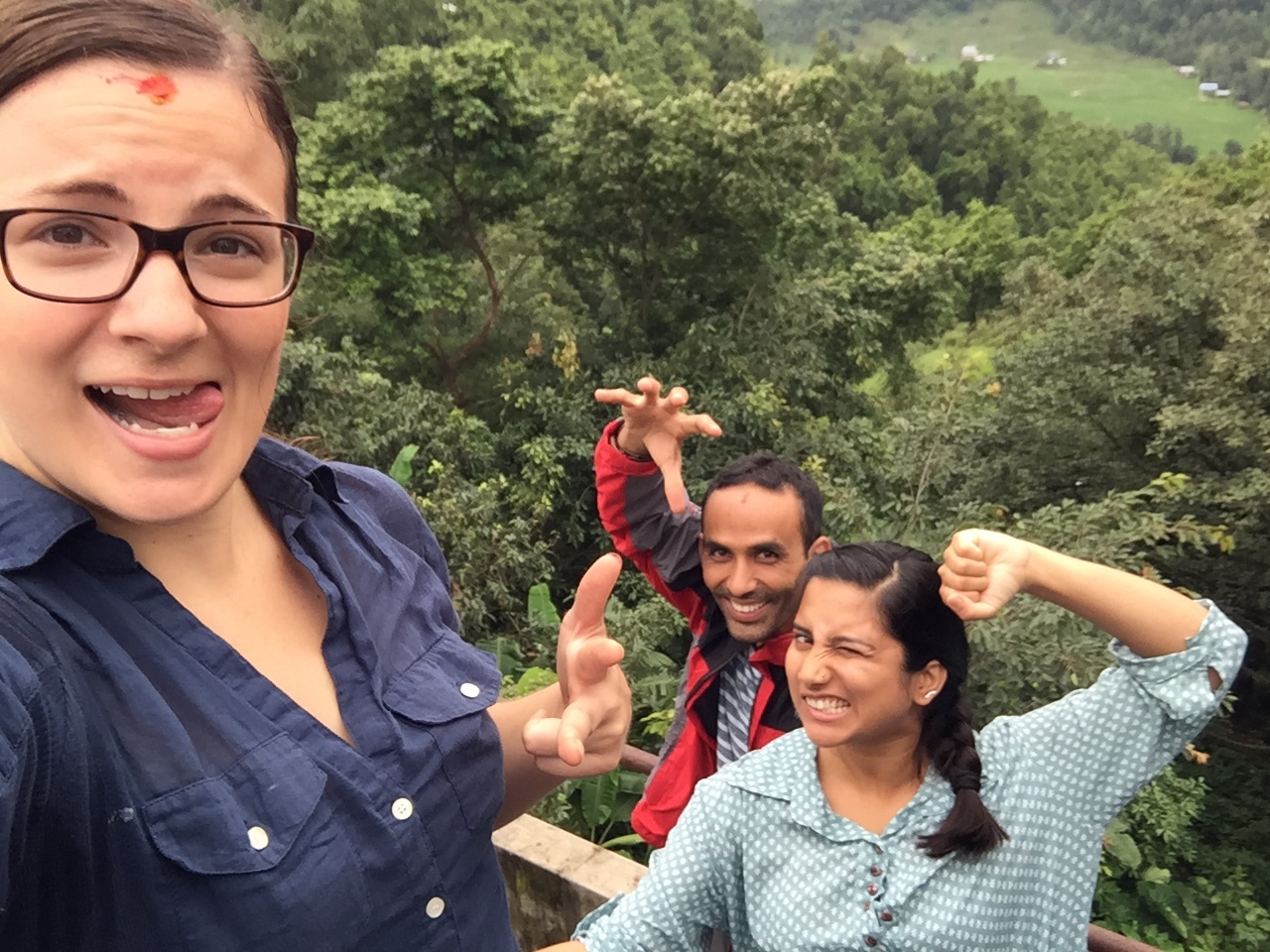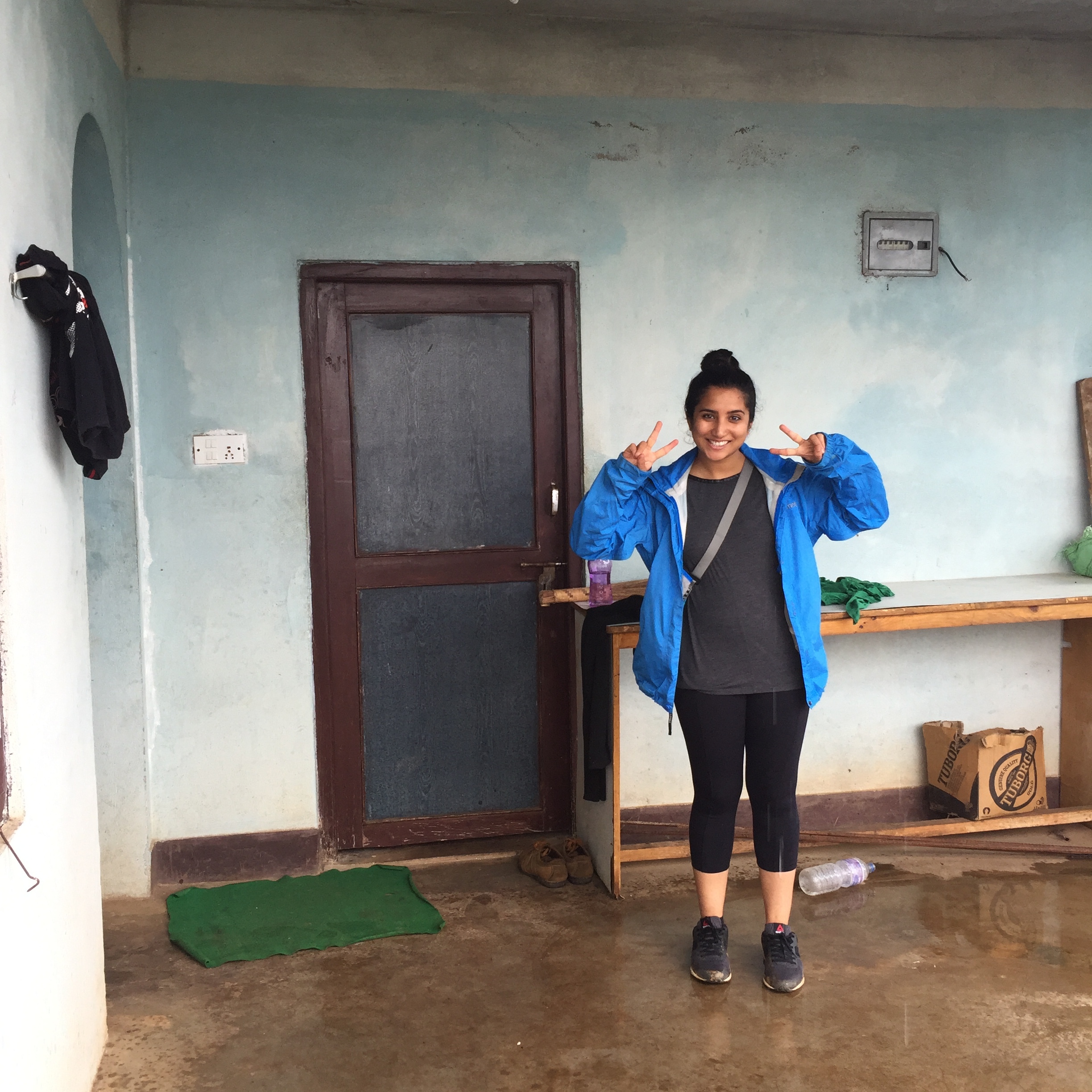Walk with me...
...through Kharanitar, a rural village in the Nuwakot district of Nepal still rebuilding after the 2015 earthquakes.
We spent two days working alongside Nepali nonprofit, Visible Impact, educating 15 local girls on accountability and activism. One of our accountapreneurs, Medha Sharma, its president and CEO, and her associate Sharmila Acharya, took Samita and I along with them.
There, we met our colleague Suresh Chand and another Visible Impact associate Sudip Nepal. Traveling by car was less exhausting than by bus. It was a luxury, really. Suresh and Sudip caught the bus at 6AM. I got picked up at my house at 8:45AM. The guys beat us to Nuwakot, even with their bus, due to heavy rain and mud, almost falling off the side of a cliff. Even with the road backed up for hours, our car managed to get around. However, we did happen to also get stuck in mud, but people stopped to help. And because of the remnants of flash flooding, we got muddy to move a boulder by hand. And when I say we, I took pictures of our driver, Samita and Sharmila manhandling the boulder.
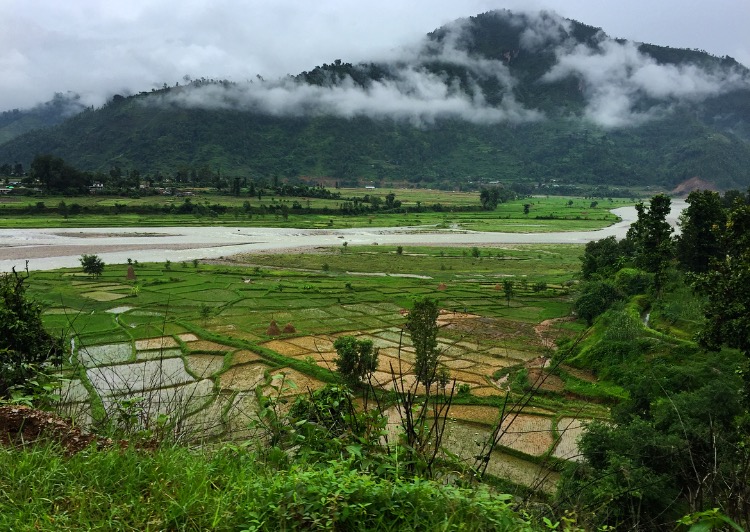
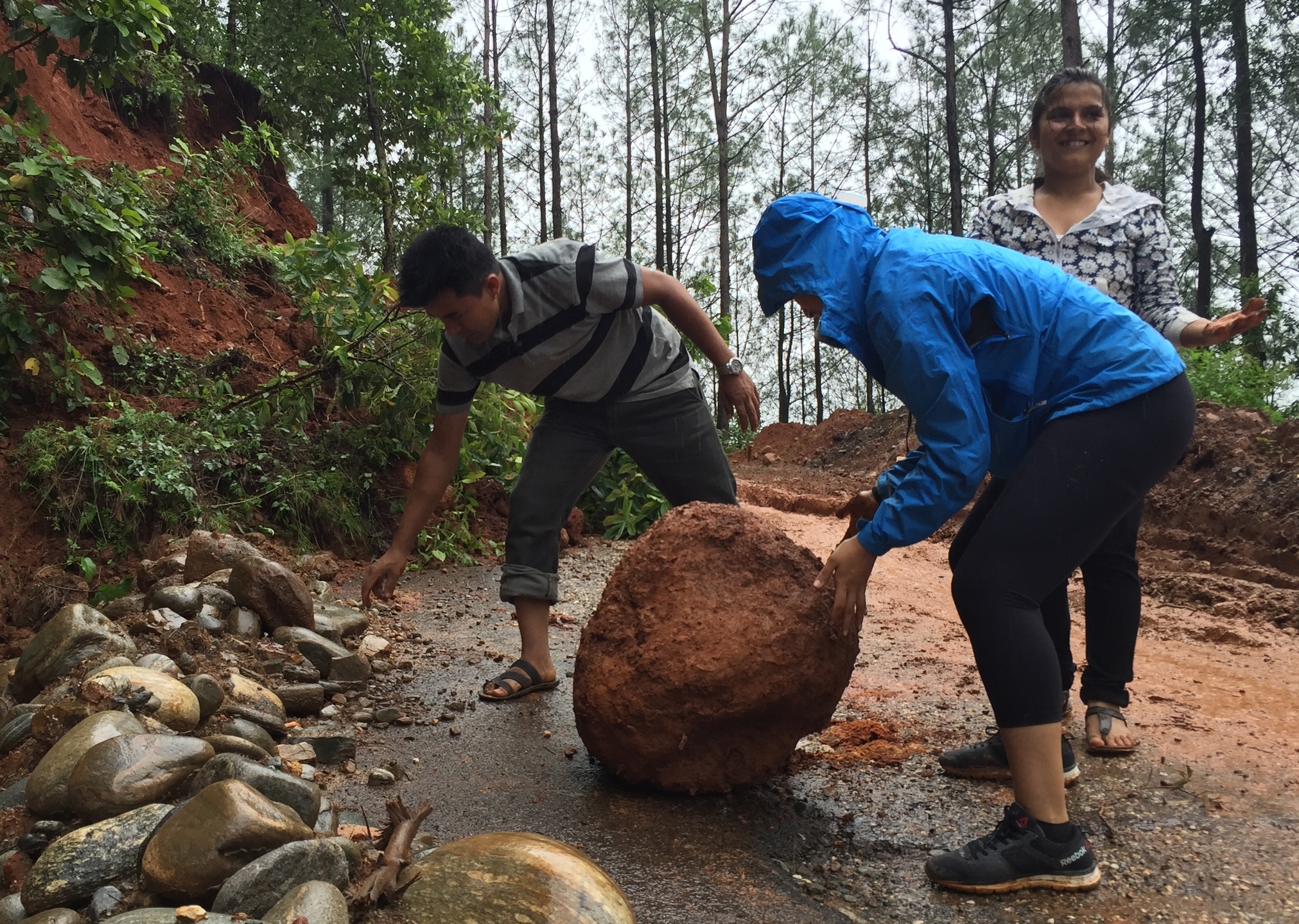
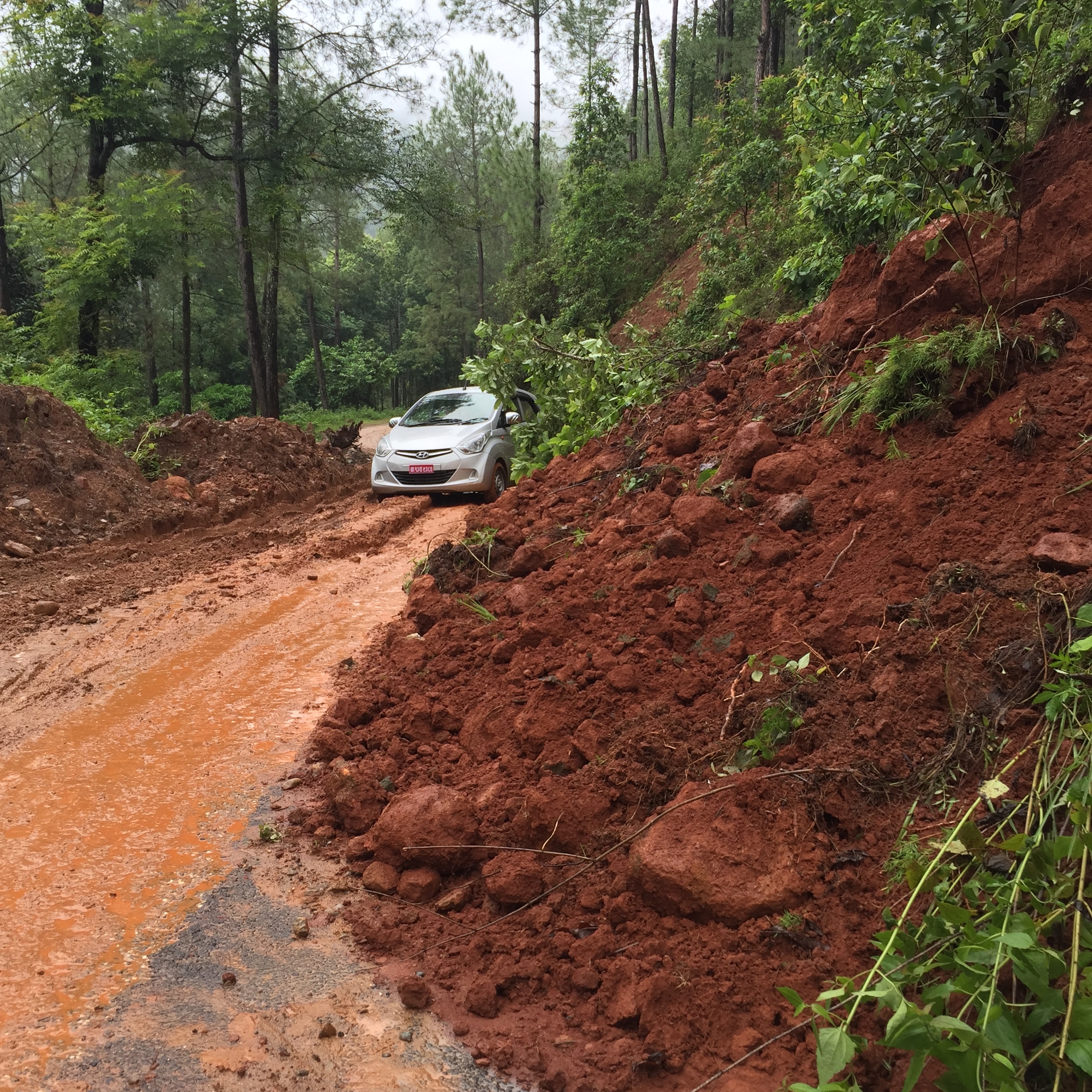
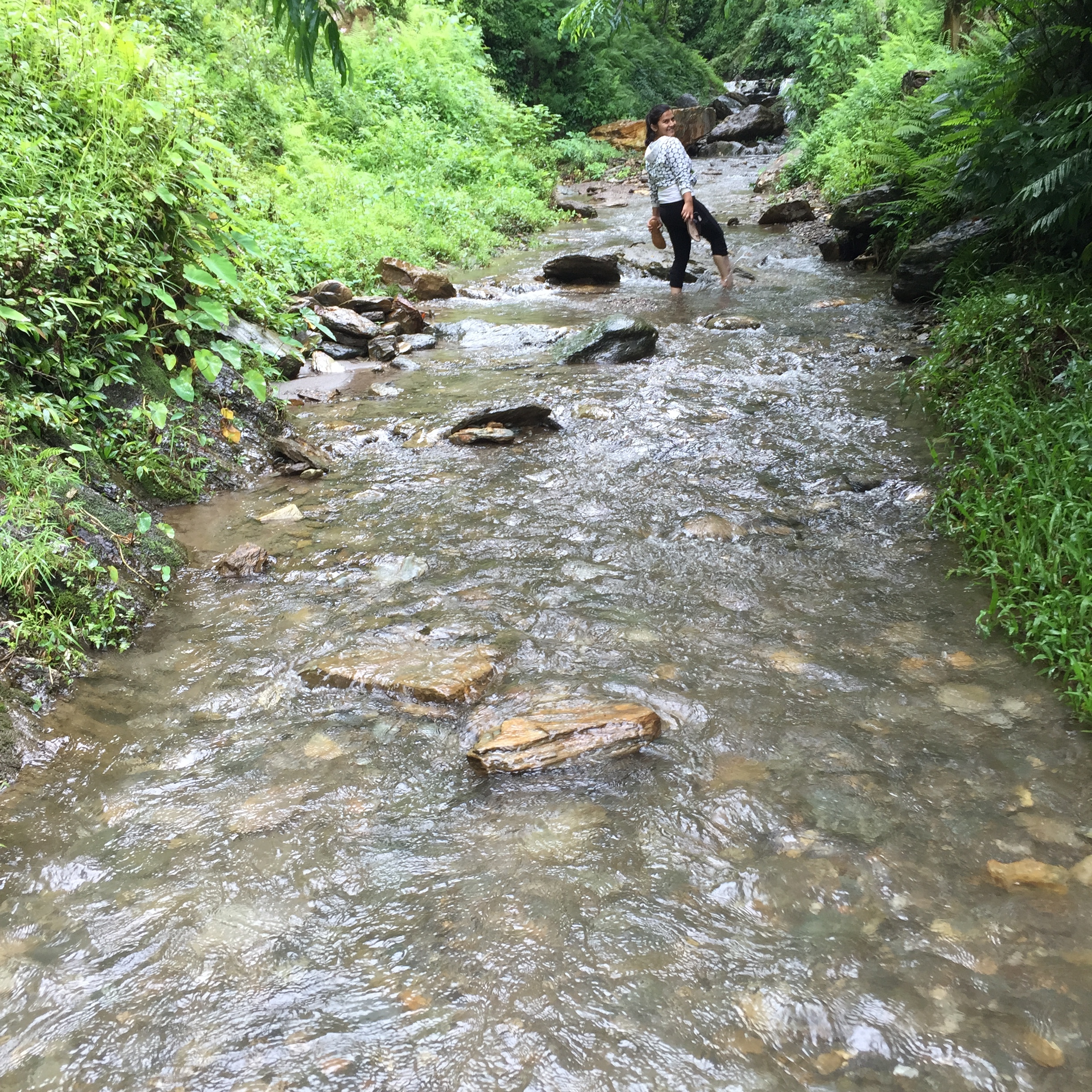
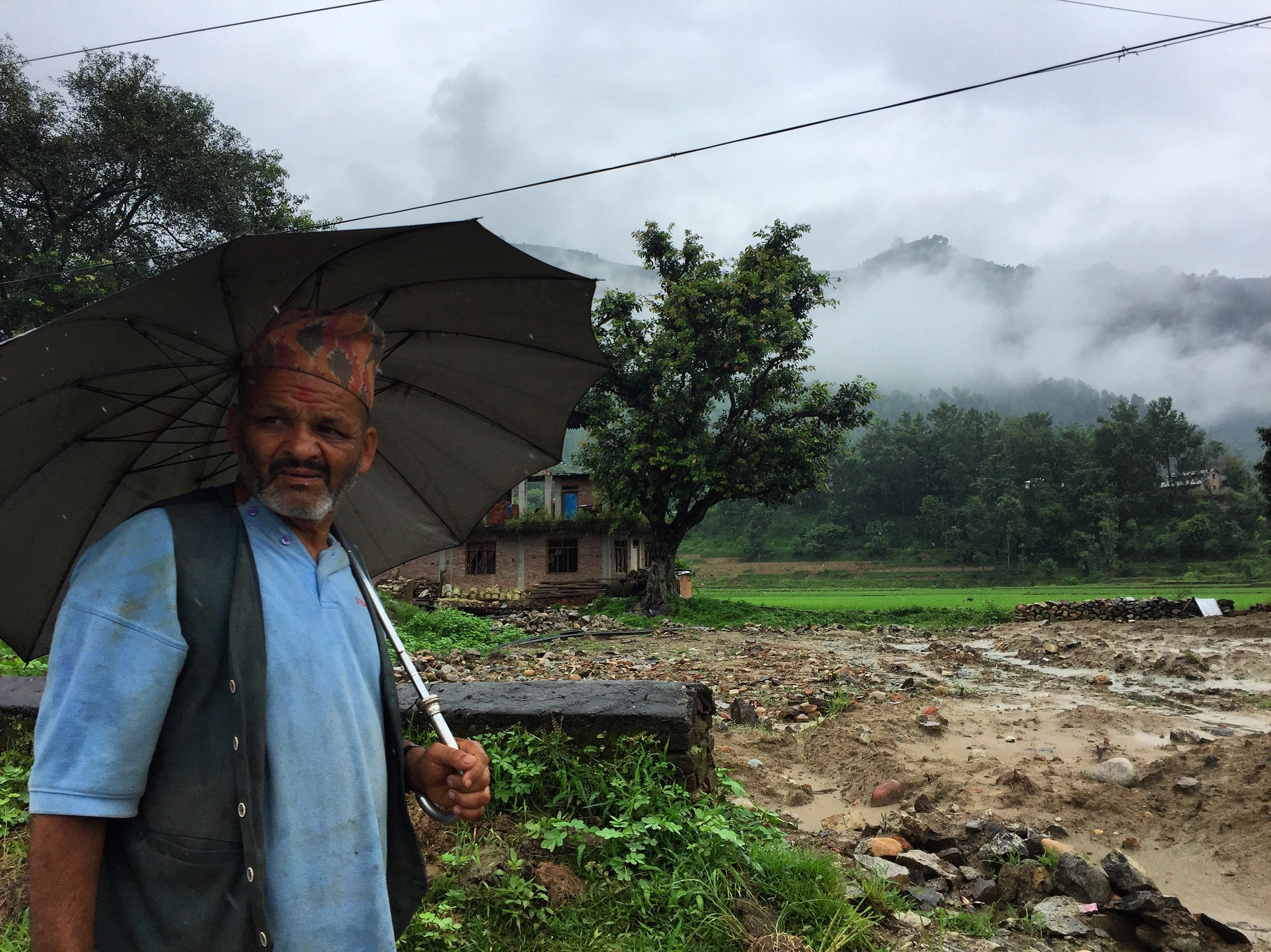
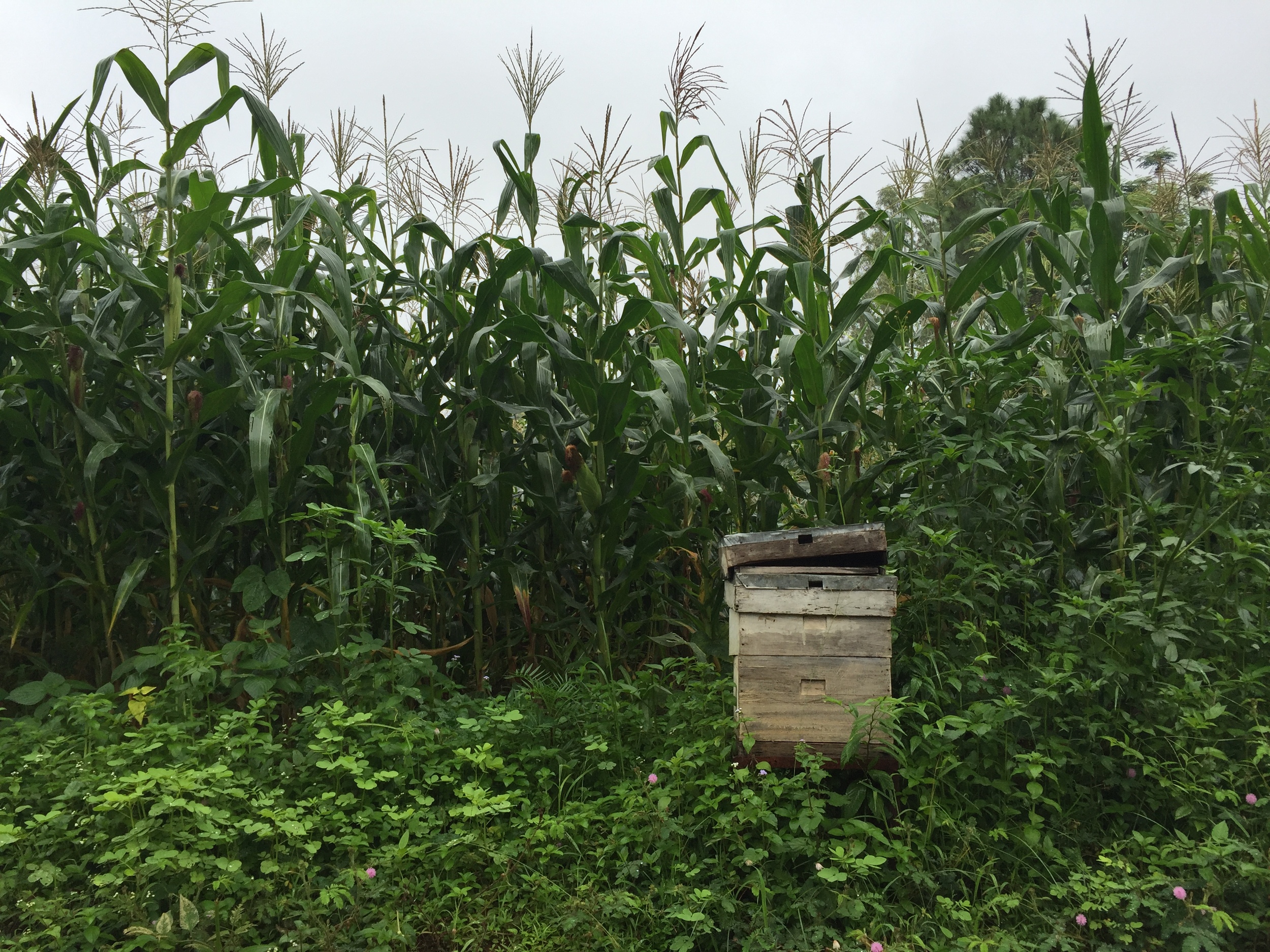
We didn't know until we got to Nuwakot that Suresh and Sudip happened to be on the very bus that blocked out route.
We settled into our rooms at Dhungana Hotel and Lodge, owned by Bhagwati Dhungana and her husband Laxman. They've been in the donut-making business for 30 years and are known for making the best donuts, selling almost 1,000 donuts a day. That's 50kg of dough.
The hard bed took a little getting used to. Guess I'm just used to a mattress. At least a much thicker one. But if that's the worst, I'll take it. Couldn't beat the view we woke up to though.
After it rained the first day, the fog cleared and you could see beyond the countryside and to the tiny houses scattered across the hills.
On Saturday night, after we finished our Daal Bhat dinner, Samita, Suresh, Sharmila, Sudip and I climbed the spiral staircase to the roof, and they introduced me to some Nepali ballads and dance numbers. And naturally I of course introduced them to some soft Indie music.
We looked out over the lights among the dark hills like stars across the sky. The wind kissed our faces as we opened our arms and embraced the cool breeze. The freshness of wood and nearby rushing river fill our senses and keep us here in this moment. I couldn't imagine a more beautiful existence than among the stillness, the laughter and freedom of this place.
And during the workshop, though the 15 girls knew little English, they were still so curious about me. They looked at me as though I was the most beautiful person they'd ever met. They loved my humidity-induced curls for some reason. And I saw admiration in their eyes.
Too often do people tend to think about what they don't have, rather than what they do.
These girls live in a village that was leveled over a year ago by earthquakes.
Many lost their homes. Their businesses. Their livelihoods. But they continue to rebuild.
Even their schools. And people here were just started to move away from burning firewood to cook.
Point is, these girls seem to appreciate what they do have, which has made me appreciate the same. They look at me with admiration, but I'm the one who adores them. I'm the fortunate one. I'm lucky enough to know them.
Karuna Poudel, 17, is one of Visible Impact's 15 social champions from Kharanitar, a village in the Nuwakot district of Nepal still rebuilding after being devastated by the 2015 earthquakes. She aspires to become an English teacher and study abroad before getting married.
I'm blessed to have the opportunity to be here. In Nepal.
With the help of my mentor Ken Harper, who first of all inspired me to apply for the fellowship and probably had a strong hand in selecting me, I got the funding I needed to tell stories in one of the most beautiful places in the world, among the most beautiful people.
This occurred to me the moment one of the girls grabbed my hand to keep me from falling, camera in hand, my feet slipping in my mud-caked sandals, as we dodge rocks and deep mud along a trail in pitch darkness on our way back to the lodge we stayed at.
While sitting down for donuts and milk tea in the morning, we got a visit from a local man, Ram Kumar Kandel and his daughter Devi. He told us in Nepali how much it would mean to him to have his daughter, who lives with a disability, to join us in the next workshop.
Ram Kumar Kandel and his daughter Devi.
Through Medha, we also met her aunt, Meera Uprety, a Female Community Health Volunteer (FCHV) for 15 years. A FCHV receives 18 days of basic training in primary healthcare. She was given a certificate and medicine kit with drugs and supplies to promote safe pregnancies, child health, family planning, supplying contraception, pills, packets and vitamins and deferrals to hospitals. Basically, she knows everyone in her village down to the lastest newborn.
Meera Uprety.
When we visited her, she gave us jackfruit to dip in cow milk as a snack.
Samita Thapa.
On Saturday, before sundown, and again on Sunday after sunrise I filmed one of the girls at her home. Inspired by his innovations to make the world a better place, Monika Upreti's role model is Stephen Hawking. After the 15-year-old and her mother lost their house to the earthquake, she became determined to become an engineer and help rebuild her village. Monika and her mother were so brave to let me into their world to tell their story. Even her mother welcomed me with open arms and even blessed me on our way out.
After we left Nuwakot, we met with Parshuram Nepal, a poultry farmer and local leader in Ratmate, about an hour or so away from Nuwakot. The second story of his home was destroyed by the earthquake and made unliveable for his family of four, forcing them to live in small quarters out back. Now, his turkeys live in the rooms on the second floor. Litter scattered about. Yup, so I climbed a ladder to that second floor, camera in hand, to film it all.
Parshuram Nepal.
That was when I ran into the largest turkeys I've ever seen in my life. And they just stared me down. After we interviewed him in Nepali, we left for lunch where I tried goat intestines for the first time. Not for me. Nope. Not. For me. On the left, you'll see Newari Khaja food - yellow beans, bhutan (goat intestines), potatoes, black soy beans, onions, peppers and chiura (beaten rice). To the right, you'll see Samosas and chickpeas and potatoes (had that for lunch with the girls).
After, we found out busses rarely stop in Ratmate, so Parshuram got a worker of his to drive me via motorbike, camera gear and overnight bag and all, to the next village 20 minutes away. And Samita and Suresh hopped on his motorbike and followed.
I didn't expect what came next. The ride felt like we were moving in slow motion. We zipped past a vast landscape of hills that looked more like mountains (but I'm told Nepalis only consider them mountains if they're snow covered.) and a rushing river surrounded by rice paddies and farmers and grazing cows. Much like on the rooftop in Nuwakot, I felt a stillness that I never wanted to leave.
I didn't pick up my phone. I would've surely dropped it. I didn't pick up my camera. I couldn't reach it. But I was fine with that. I couldn't take my eyes off the winding roads, the blue skies that met the mountainous hills and the herders on both sides of the river to our right.
This was better than traveling by bus. I'm glad the busses didn't stop for us. Another reason to appreciate life more.
And ps. I won't find myself in Nepal. I don't need to. I'm turning 28 next month. I found myself. Now, I'm just exploring who I've become.
Thanks for following along guys! 'Til the next post! :)
Cheers,
B






